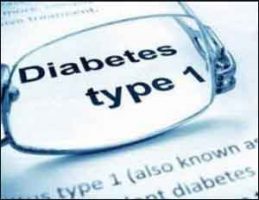- Home
- Editorial
- News
- Practice Guidelines
- Anesthesiology Guidelines
- Cancer Guidelines
- Cardiac Sciences Guidelines
- Critical Care Guidelines
- Dentistry Guidelines
- Dermatology Guidelines
- Diabetes and Endo Guidelines
- Diagnostics Guidelines
- ENT Guidelines
- Featured Practice Guidelines
- Gastroenterology Guidelines
- Geriatrics Guidelines
- Medicine Guidelines
- Nephrology Guidelines
- Neurosciences Guidelines
- Obs and Gynae Guidelines
- Ophthalmology Guidelines
- Orthopaedics Guidelines
- Paediatrics Guidelines
- Psychiatry Guidelines
- Pulmonology Guidelines
- Radiology Guidelines
- Surgery Guidelines
- Urology Guidelines
Mesenchymal stem cells may restore insulin production by pancreas in T1 DM: Clinical trial

USA: Type 1 diabetes may soon find its cure, freeing the patients from its complications that develop over time. Treatment for patients with type 1 diabetes is focused on monitoring blood sugar levels, but research suggests that specific types of stem cells could spur the pancreas to start producing insulin again.
A clinical trial by researchers at the Medical University of South Carolina or MUSC is looking at testing stem cells in type 1 diabetes. The mesenchymal stem cells (MSCs) from umbilical cords transplanted into the pancreas of people with type 1 diabetes (T1D) may restore the normal production of insulin by the pancreas.
Type 1 diabetes, diagnosed mostly in children and adolescents, is due to an insulin deficiency. Type 2 diabetes is the most common form of the disease and occurs when patients are resistant to insulin. People with T1D must take insulin every day, while those with type 2 can mostly be treated with diet, exercise, and oral diabetes medications. Type 1 unlike, type 2, is primarily a genetic condition in which the body's immune system attacks and destroys beta cells in the pancreas -- rendering it unable to produce insulin.
Injected insulin cannot fully replicate the natural regulation of blood glucose levels of insulin produced by the beta cells in the pancreas, leaving a gap in proper treatment of the condition.
Read Also: Medication to delay or prevent type 1 diabetes receives EMA’S priority designation
The researchers at the Medical University of South Carolina, or MUSC are leading their research efforts in the same direction, to reverse the debilitating effects of type 1 diabetes. For the purpose, they have enrolled T1D patients to find whether MSCs from the umbilical cord when transplanted into the pancreas of the diabetes patients, help in the production of insulin.
"MSCs derived from umbilical cords show greater cell yield, a less invasive harvesting procedure with associated reduced morbidity and stronger immunosuppressive and regenerative potential and are a popular source for cell therapy," Hongjun Wang, a professor in the Department of Surgery at MUSC, said in a press release.
Earlier research has suggested that MSCs, however, when administered to people with type 1 diabetes -- typically intravenously -- restore the normal function of the immune system, preserving the beta cells in the pancreas so that the organ can produce insulin.
Indeed, Wang and her colleagues hope to replicate a small study in Sweden, published in 2015 in the journal Diabetes, which administered MSC therapy to 20 adults with type 1 diabetes, using stem cells harvested from their bone marrow. After tracking these patients for a year, the authors noted that the MSCs had indeed led to the creation of beta cells and spurred insulin production.
Read Also: Vaccination against rotavirus may prevent type 1 diabetes in some children: PLOS Pathogens
According to Wang, she and her colleagues are using MSCs from umbilical cords -- rather than bone marrow -- because harvesting procedures are less invasive and often yield more usable cells.
The MSC study is one of four in Wang's lab at MUSC that received funding from the National Institutes of Health. She said it will be a randomized, double-blind, placebo-controlled clinical trial in six adults newly diagnosed with type 1 diabetes, and will take at least five years to complete.
"The beauty of our lab at MUSC is the ability to do translational research," said Wang. "We can study the mechanisms of the disease on the bench and then have the ability to move to the bedside in a clinical trial."

Disclaimer: This site is primarily intended for healthcare professionals. Any content/information on this website does not replace the advice of medical and/or health professionals and should not be construed as medical/diagnostic advice/endorsement or prescription. Use of this site is subject to our terms of use, privacy policy, advertisement policy. © 2020 Minerva Medical Treatment Pvt Ltd